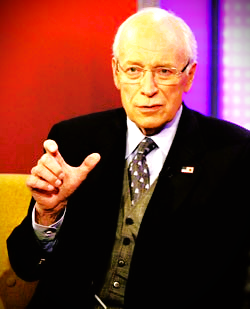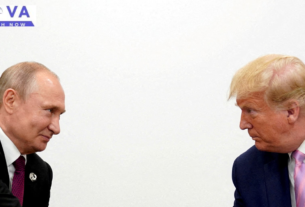In Washington, where secrets are currency and power shields the powerful, truth is often the first casualty. That reality came into sharp focus again this week when a federal judge slammed the door on Valerie Plame and Joseph Wilson’s explosive lawsuit, a legal showdown that dared to put former Vice President Dick Cheney and other top Bush-era officials in the crosshairs.
Their crime? Allegedly leaking the identity of a covert CIA agent Plame herself to the press in a stunning act of political revenge. Their defense? They were just doing their jobs.
And now? Case dismissed.
The Scandal That Shook the Capital
It all began in 2003, in the fever-pitch run-up to the Iraq War. Then-Ambassador Joseph Wilson publicly debunked a central pillar of the Bush administration’s case for invasion: the claim that Saddam Hussein sought uranium in Africa. Wilson called it a distortion of intelligence. Days later, his wife Valerie Plame was outed as a covert CIA operative in a syndicated newspaper column. Her cover was blown. Her career was destroyed.
It looked, smelled, and quacked like retaliation.
Their lawsuit alleged exactly that: that top administration officials, furious over Wilson’s dissent, exposed Plame to punish him and send a warning to others.
It was one of the most sensational political scandals of the 2000s. A spy betrayed. A diplomat silenced. A government accused of weaponizing its own secrets. Now, it’s a case the court says never should’ve been filed.
The Gavel Falls
In a meticulous yet maddening 41-page opinion, U.S. District Judge John Bates said the couple’s case raised “important questions” about government overreach. But ultimately, he ruled, those questions belong to voters and Congress not the courts.
Bates, a Bush appointee, concluded that Cheney, Karl Rove, Richard Armitage, and Lewis “Scooter” Libby were all acting within their official duties even if their actions were “highly unsavory.” Talking to the press, even about a covert agent? All in a day’s work, apparently.
It was a legal Teflon coating on one of the darkest political stains of the era.
The message? You can out a spy as long as you’re doing it from inside the West Wing.
Justice Deferred or Denied?
Plame and Wilson were predictably livid. Their lawyer, Melanie Sloan, called the ruling a dangerous precedent: “It tells government officials they can destroy lives, abuse classified information, and spin the truth with impunity as long as they do it under the guise of their job.”
Wilson called it “just the first step in what we’ve always known would be a long legal battle.”
But many see it as the last gasp of accountability in a case where the only conviction Libby’s wasn’t for the leak itself, but for lying about it. His sentence? Wiped clean by President Bush, who called it “excessive.”
In the end, no one paid the price for outing Valerie Plame. Not really.
Power Plays and Political Ghosts
This case isn’t just about a CIA operative and a retaliated diplomat. It’s about the machinery of power, how it bends laws, spins narratives, and buries consequences. In post-9/11 Washington, intelligence was politicized, dissent was punished, and truth was whatever the administration said it was.
And if you challenged it? You risked being erased professionally, personally, and legally.
What the court has now confirmed is that those in the highest offices can use the tools of the state, classified secrets, media manipulation, intimidation without fear of civil liability. The suit didn’t just lose. It was told it never stood a chance.
What Happens Now?
Plame and Wilson say they’ll appeal. But the road ahead is steep. The legal precedent is hardening: government officials can leak, lie, and retaliate, as long as it falls under the murky umbrella of “official duties.”
Meanwhile, the architects of the leak walk free. Rove and Armitage never faced charges. Libby’s conviction was neutered. Cheney remains unrepentant.
And the woman who once worked in the shadows, risking her life for the country, was left exposed, discarded, and silenced by the very government she served.
This wasn’t just a legal defeat. It was a cautionary tale of what happens when politics becomes weaponized, truth becomes optional, and justice becomes a ghost.




